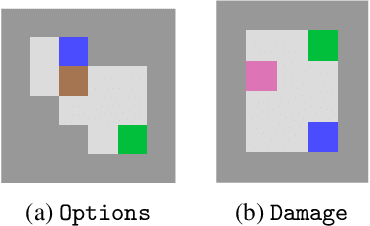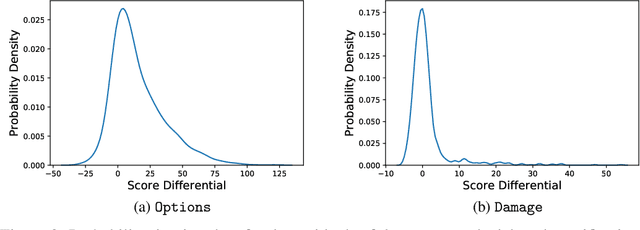Formalizing the Problem of Side Effect Regularization
Paper and Code
Jun 24, 2022

AI objectives are often hard to specify properly. Some approaches tackle this problem by regularizing the AI's side effects: Agents must weigh off "how much of a mess they make" with an imperfectly specified proxy objective. We propose a formal criterion for side effect regularization via the assistance game framework. In these games, the agent solves a partially observable Markov decision process (POMDP) representing its uncertainty about the objective function it should optimize. We consider the setting where the true objective is revealed to the agent at a later time step. We show that this POMDP is solved by trading off the proxy reward with the agent's ability to achieve a range of future tasks. We empirically demonstrate the reasonableness of our problem formalization via ground-truth evaluation in two gridworld environments.
 Add to Chrome
Add to Chrome Add to Firefox
Add to Firefox Add to Edge
Add to Edge